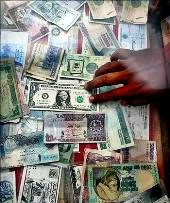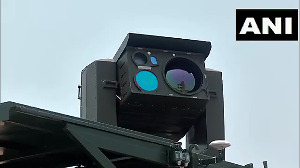 India may have to draw about $9 billion from its foreign exchange reserves to finance current account deficit this year, PMEAC Chairman C Rangarajan said on Friday, while pitching for promoting foreign investment and exports to deal with problem in the long run.
India may have to draw about $9 billion from its foreign exchange reserves to finance current account deficit this year, PMEAC Chairman C Rangarajan said on Friday, while pitching for promoting foreign investment and exports to deal with problem in the long run.
The Prime Ministry's Economic Advisory Council Chairman also said fiscal deficit is a concern too and suggested raising domestic oil prices to restrict it to the budget target of 4.8 per cent of the gross domestic product in this fiscal.
"Controlling CAD remains the main concern at present. . .
“On the assumption that total CAD will be $70 billion and the net capital inflows that we have estimated (about $61 billion), there will be a drawdown on the reserves of about $9 billion," Rangarajan said.
He also expressed the hope that CAD will even fall below $70 billion if the capital inflows picks up.
"Additional focussed steps to increase net capital inflows can result in up to $10-15 billion more inflows during the year, ramping it up to over $75 billion, which, in combination with a restrained CAD, would enable some reserve rebuilding," the PMEAC chief said.
The CAD was not fully financed in 2011-12 and the country had to run down reserves by $12.8
India, however, had fully financed its record current account deficit of $88.2 billion last fiscal and even added $3.8 billion to the foreign exchange reserves.
Finance Minister P Chidambaram had been maintaining that India would be able to fully finance CAD this year as well.
"This year we will contain the current account deficit to $70 billion or below and we will fully finance it," he said in the Lok Sabha on August 27.
The economic outlook report for the fiscal prepared by PMEAC stressed a focused strategy to improve export competitiveness to take advantage of rupee depreciation to bring down the CAD.
While releasing the report, Rangarajan pitched for simplifying export-related procedures and boost domestic coal production.
Other steps suggested by the council, include reduction in oil subsidies to make them more price elastic and pro-active implementation of modified gold deposit scheme.
With regards to foreign investment, Rangarajan stressed on stable, non-reversible policy regime besides early resolution of transfer pricing issues.
PMEAC also suggested additional steps to increase net capital inflows.
.jpg)










 © 2025
© 2025